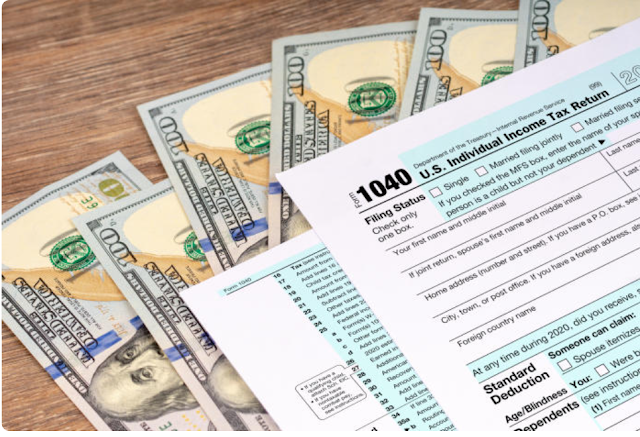Taxes 2022: A new change to know for this year's tax season
Tax season is upon us, and there are some significant changes in 2022 - including this year's deadline - but most of them stem from tax legislation in the age of the pandemic.
"The pandemic has changed the tax landscape as billions of dollars in aid have been processed through tax returns," Kathy Pickering, chief tax officer for the Tax Institute at H&R Block, said in a webinar. "For many Americans… the tax return is the most important financial transaction of the year. The past two years have reinforced this point as millions of families have relied on the tax return to take advantage of an important government exemption."
This year, tax season begins on January 24, with the deadline on April 18 instead of April 15. For residents of Maine and Massachusetts, the tax deadline is April 19 due to Patriot Day, a holiday in both states.
The NCL webinar sponsored by the H&R Block Tax Institute outlined what you need to know this year, said Garrett Watson, a senior policy analyst at the Tax Foundation Garrett Watson.
Taxpayers Need a Child Tax Credit (CTC) Adjustment
Many Americans have received prepayments for a child tax credit. Under the US bailout enacted in March 2021, the amount of the credit was increased, and eligibility expanded so that families with little or no income could qualify. In addition, the legislation allowed half the honor to be disbursed in advance in monthly payments from July to December of last year. The other half is distributed as part of your tax refund.
To get the remaining amount correctly, taxpayers must use a new tax document this filing season, IRS Letter 6419, to settle the amount they received upfront from the Child Tax Credit, according to Manuel Dominguez, the senior tax research analyst at H&R Block.
As Yahoo previously reported, taxpayers whose refund is based solely on this credit may see a smaller tax refund this year. If you did not receive your IRS 6419 letter, you could obtain it from the IRS Child Tax Credit Update Portal. You will need this document to submit this year.
Find out if you owe the IRS for an overpayment of CTC
According to Dominguez, the tax credits offered to children were based on their 2020 tax returns, so divorced or single parents who take turns claiming dependents may have received an overdue CTC payment if they don't claim the child this year.
Safe Harbor Repayment Protection protects low-income earners from paying more than this amount. Income limits are $40,000 for individual subscribers, $50,000 for heads of household, and $60,000 for subscribers.
If your income exceeds these caps for your registration status, you may need to pay it back. Consult a tax professional to determine what to do.
There are two significant changes to this credit. First, the amount of credit allowed has increased significantly. In the past, taxpayers were limited to a maximum of $3,000 for child care expenses for one dependent and up to $6,000 for two dependents. This year, the amount is $8,000 for one dependent child and $16,000 for two dependents. It also includes incidental expenses for child care, day camps, or dependent care.
The second significant change is that the credit is fully refundable if the taxpayer meets specific requirements. This means that taxpayers can get the total amount of the credit even if they don't pay any taxes.
"Low-to-middle income taxpayers and ... had no tax liability when they filed their tax return ... they never saw any benefit from this credit," Dominguez said. "But this year, now that the credit is fully refundable, they can take advantage of it."
Increased Earned Income Tax Credit (EITC) Threshold
There are three significant changes to the Earned Income Tax Credit (EITC) that taxpayers should know about.
The income threshold has been increased for unmarried applicants with no children: "If you applied in the last year and your income was just above the maximum limit for claiming this credit, know that the income threshold has increased," Dominguez said, "and you may now be eligible for this credit." credit." this year. "
Married taxpayers who file separately can qualify: You can claim the EITC as a married file separately if you meet other qualifications. In previous years, this was not available to these taxpayers.

Post a Comment